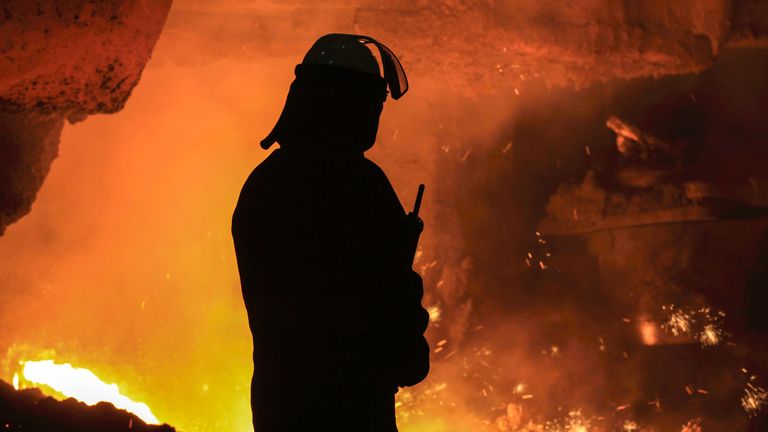Sky Views: Cutting immigration may crash economy

Thursday 15 June 2017 07:19, UK
Sam Kiley, Foreign Affairs Editor
So the Prime Minister declares an "end to austerity". Not because she thinks it would be good for Britain but because she thinks it would be good for Theresa May.
Why? Because Jeremy Corbyn said austerity was bad - and he got lots of votes and won some seats and made Mrs May look like a member of the Nasty Party, which is odd, since there once was a time when she tried to un-invent that organisation with a right old telling off to the Tories.
But she's still putting a tin ear to what might really matter for this country.
Why, for example, continue to insist that there is no change in the Brexit plan from before her moment of hilarious hubris led her off a cliff in the General Election?
She remains, hoho, committed to cutting immigration into the "tens of thousands". This doesn't make sense economically or politically.
Britain is close to full employment - joblessness stands at 4.7%, according to the ONS. That's as low as it's been since Showaddywaddy were in the charts.
But back then there were these things called "unions" led by men with comb-overs who banged on about "free collective bargaining" and secretly hoped to hand over the "means of production" to the "masses".
Margaret Thatcher, the Iron Lady, did away with the unions. Most of the UK's inefficient industrial sectors (much of them publicly owned) withered away. It was replaced with the "loadsamoney" culture of the 1980s, the booming 90s and the flagrantly mad economic orgy that led to the 2008 crash.
So why, now, is Mrs May insisting on strangling the UK's access to labour?
Consider this: "The UK's construction industry must hire more than 400,000 workers every year for the next five years to build enough homes to meet demand."
That's a quote from the Daily Telegraph of 22 February this year. Not the Morning Star from the Olden Days.
James Bryce, director of workforce planning at Arcadis, a construction firm that did a report on all this, told The Telegraph: "What we have is not a skills gap; it is a skills gulf. Systemic under-investment in the nation's workforce has contributed to a reduction in UK productivity."
Meanwhile, according to recruiting agency lobby group the Recruitment and Employment Confederation: "Official data shows unemployment has dropped to the lowest level since 1975, and EU citizens are leaving the UK in droves.
"Employers seeking to fill vacancies are running out of options. Skill shortages are causing headaches in many sectors."
Yet real wage increases are still held down at around 1% in the public sector.
It's very simple.
If the UK restricts the free movement of labour into the economy, the economy itself will be unable to grow. It will shrink.
On top of that, wages will go up - that's market forces for you. And as the UK labour market finds itself insulated against competition it may well unionise again. Why would workers have to live the fearful lives of wage slaves on zero hour contracts when they can force up wages by banding together?
And all this will deliver inflation that will gallop ahead of growth. In 1975 inflation was around 25%. Ten times or more what it is now.
It makes no sense to restrict an economy's access to labour. Not unless you're a union agitator from yester-yore.
Is Theresa May a clone of Arthur Scargill?
Is there a comb-over beneath that expensive hairdo?
Sky Views is a series of comment pieces by Paste BN editors and correspondents, published every morning.
Previously on Sky Views: Tom Cheshire - Why nobody won the digital election




